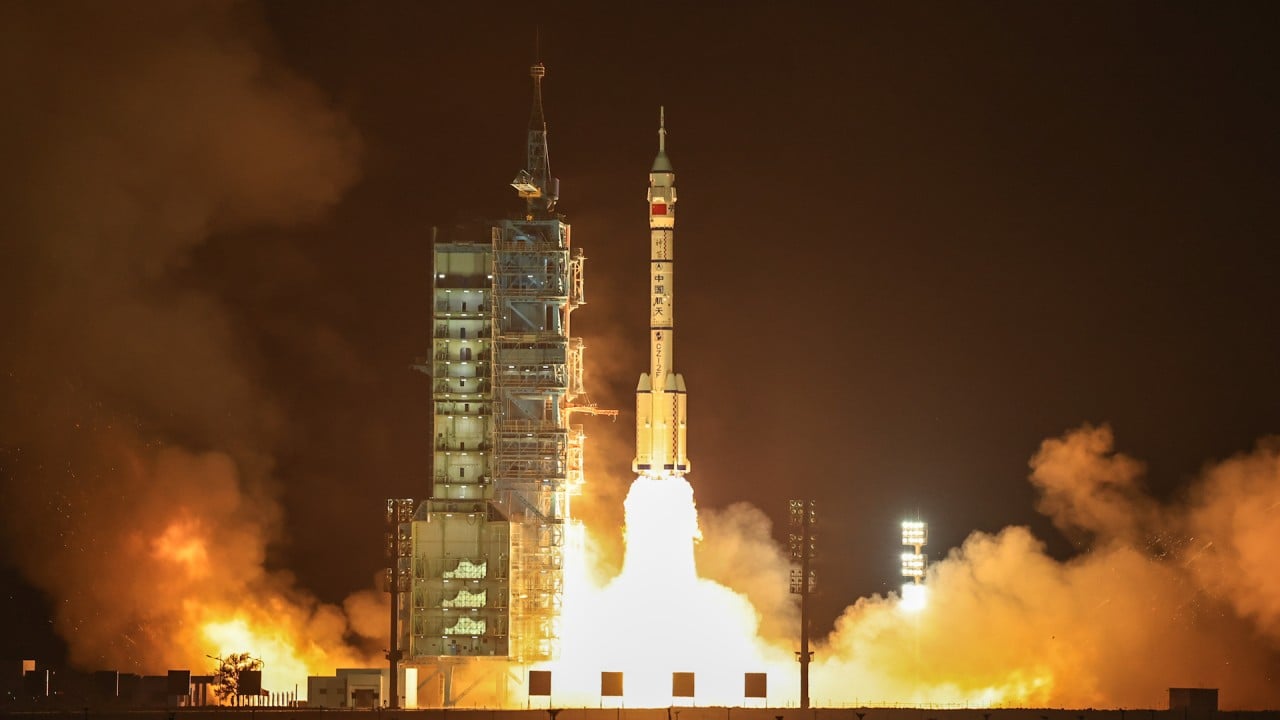
China, Russia space ‘militarisation’ could include nuclear weapon: US official
- House Armed Services Committee hears Washington’s concerns that Moscow plans to arm a satellite with an ‘indiscriminate’ device
- Assistant defence secretary for space policy John Plumb also took aim at China’s satellites, which he said could be put to military use
According to Plumb, Russia is “developing a concerning anti-satellite capability related to a new satellite carrying a nuclear device that Russia is [also] developing”. He said the US is concerned about being “unable to convince them otherwise to ultimately fly a nuclear weapon in space”.
Plumb emphasised that such an “indiscriminate” weapon would jeopardise all satellites, along with the world’s essential communications, scientific research, meteorological data, agriculture, commerce, and national security services that “we all depend upon”.
He also said it could render low Earth orbit “unusable”. Responding to a lawmaker’s question of whether that could last a year, Plumb said “I believe it could”. Asked if the threat was looming, Plumb said it was “imminent in the way that we should have to worry about it right now”.
Russia ponders putting nuclear power plant on the moon with China
“Today’s veto begs the question: Why? Why if you are following the rules would you not support a resolution that reaffirms them? What could you possibly be hiding?” US ambassador to the UN Linda Thomas-Greenfield told the council after the vote.
The resolution aimed to urge all states to reaffirm their commitment to comply with the Outer Space Treaty of 1967 and called on them to actively contribute to the goal of peaceful use and the prevention of an extraterrestrial arms race.
Russia’s UN ambassador Vassily Nebenzia accused Washington of trying to discredit Moscow and announced that Russia would soon initiate discussions with council members on its own proposed resolution aimed at promoting the peaceful use of space.
In a statement issued by the White House last month, US National Security Adviser Jake Sullivan said that if Russian President Vladimir Putin truly had no intentions of deploying nuclear weapons in space, Moscow “would not have vetoed this resolution”.
Plumb called the 1960s – when the Soviet Union and the US each conducted a high-altitude nuclear test – a “different time” when testing was done to “learn things”. The tests damaged all satellites and rendered those orbits unusable “for a time”, he added.
Plumb clarified that the outer space treaty does not prohibit weapons in space, but refers to weapons of mass destruction, and asserted that Russia and China have “militarised” space.
“We can say that Russia is deploying and developing prototype kinetic weapons in space,” he said.
“We can see that China has developed robotic satellites that are really probably dual use – they can be used for non-military purposes but they can clearly also be used for military purposes like grappling a satellite.”


